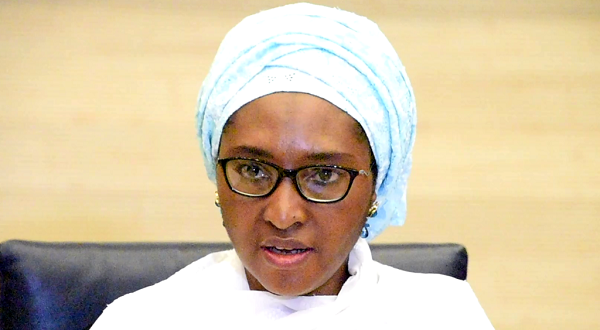News
About 230m people in Sub-Saharan Africa face chronic food insecurity –Nigeria’s Finance minister

Nigeria’s Minister of Finance, Budget and National Planning, Zainab Ahmed has raised the alarm that the food situation in Nigeria and other African countries were unsustainable, noting that about 230 million people in Sub-Saharan Africa were still prone to chronic food insecurity.
Speaking at the ongoing virtual World Bank-IMF 2021 Spring Meetings Roundtable on ‘Food Security In Africa’, she said Nigeria has faced critical challenges both in the upstream and downstream agricultural sectors, in her drive for food security.
Ahmed said the Nigerian government strongly believes that it was time to change the global support to commercial agriculture, given the quantum of arable land in Africa, and stressed the need for the inflow of Foreign Direct Investment (FDI) into the agriculture value chain.
However, she said the Nigerian government has instituted the necessary macroeconomics and fiscal reforms, to strengthen governance and institutions, and is prioritising intra-African trades, as well as structural reforms and public investments to address the challenges.
Read also: Rising prices of food items highlight struggle of Nigerian households —NBS
At the global level, Ahmed called for an integrated, targeted and well-coordinated approach that would guarantee food security, noting that a robust and secured food system was central to the health of both humans and the economies of nations.
Meanwhile, she invited international communities, particularly the multilateral and private sector, to key in and to assist Africa to build food resilience and pursue the attainment of the Sustainable Development Goals (SDGs) and the goals of the African Union (AU) Agenda 2063.
“The current food situation is far from achieving the goal of feeding everyone, especially with sustainable diet. The COVID-19 pandemic has exacerbated the perennial food shortages in Africa.
“Some 230 million people in Sub-Saharan Africa are still prone to chronic food insecurity, yet about one-third of food produced globally is regularly wasted,” she said.
On the agribusiness development initiatives in Nigeria, Ahmed said the vision of the Nigerian government is to work with key stakeholders to build an agribusiness economy capable of delivering sustained prosperity, by meeting domestic food security goals, boosting exports, and supporting sustainable income and job growths.
Meanwhile, she said that about seven million Nigerians were actively employed in agriculture under the administration’s diversification agenda, while the Ministry of Agriculture was working to ensure that the sector offers about 20 million jobs in the nearest future.
Join the conversation
Support Ripples Nigeria, hold up solutions journalism
Balanced, fearless journalism driven by data comes at huge financial costs.
As a media platform, we hold leadership accountable and will not trade the right to press freedom and free speech for a piece of cake.
If you like what we do, and are ready to uphold solutions journalism, kindly donate to the Ripples Nigeria cause.
Your support would help to ensure that citizens and institutions continue to have free access to credible and reliable information for societal development.
























